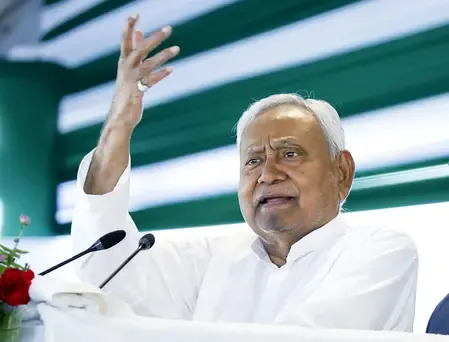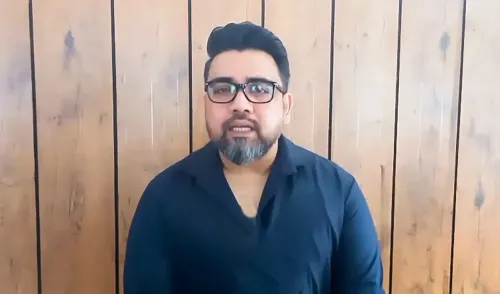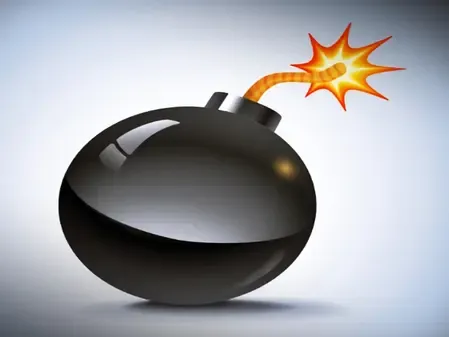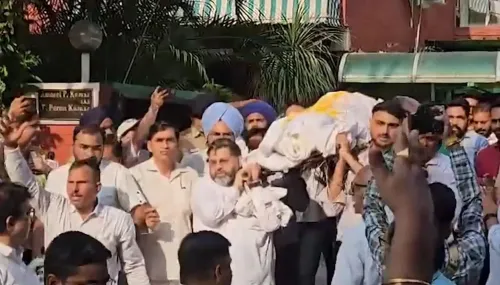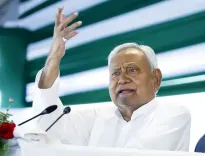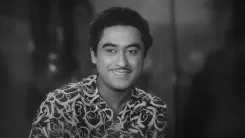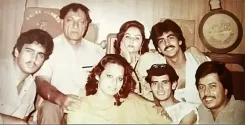How Did India Mourn the Loss of Kenya's Raila Odinga?
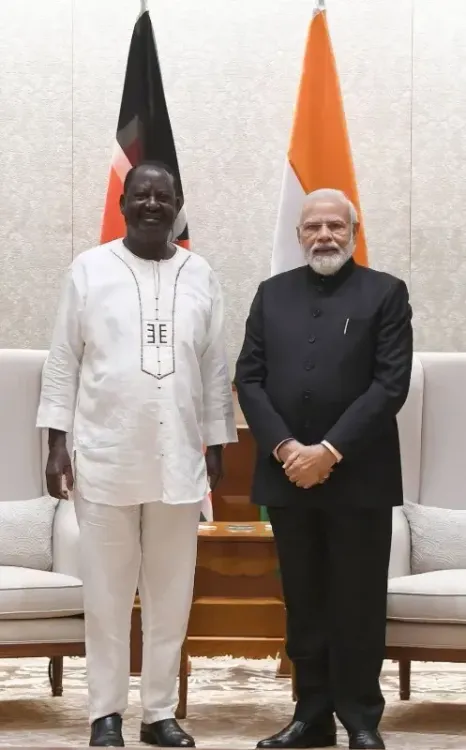
Synopsis
Key Takeaways
- Raila Odinga's legacy as a statesman is monumental in shaping modern Kenyan democracy.
- His contributions to India-Kenya relations were significant, particularly in promoting cultural exchanges.
- His admiration for Ayurveda illustrates the potential for collaboration in health and wellness.
- Odinga's passing is a reminder of the fragile nature of life and the impact one individual can have.
- Local authorities and the Kenyan Embassy are working to ensure a respectful repatriation of his remains.
New Delhi, Oct 15 (NationPress) Prime Minister Narendra Modi expressed profound sorrow over the passing of Raila Odinga, the former Prime Minister of Kenya, who died earlier today at the age of 80 in Koothattukulam, Kerala, due to a heart attack while on his morning walk.
Referring to Odinga as a “dear friend of India”, PM Modi reminisced about their interactions during his time as Chief Minister of Gujarat.
Odinga was in Kerala for Ayurvedic treatment and experienced a sudden collapse, leading to his immediate transfer to Sreedhareeyam Ayurvedic Eye Hospital and Research Centre, where efforts to revive him were unsuccessful. His remains are now at Deva Matha Hospital in Koothattukulam.
In a post on X, PM Modi stated, “Deeply saddened by the passing of my dear friend and former Prime Minister of Kenya, Mr. Raila Odinga. He was a towering statesman and a cherished friend of India. I had the privilege of knowing him closely since my days as Chief Minister of Gujarat, and our association continued over the years.”
“He had a special affection for India, our culture, values, and ancient wisdom,” he continued. “This was reflected in his efforts to strengthen India-Kenya ties. He particularly admired Ayurveda and the traditional medicine systems of India, having witnessed their positive impact on his daughter's health. I extend my deepest condolences to his family, friends, and to the people of Kenya in this hour of grief.”
Odinga arrived in Koothattukulam six days ago, accompanied by his daughter and close family members.
He had been maintaining a routine that included morning walks and treatment sessions at the hospital.
According to local authorities, the heart attack struck around 6:30 a.m. during his walk, and he was transported to the hospital in critical condition.
A significant figure in Kenyan politics for over four decades, Odinga served as Prime Minister from 2008 to 2013, during a vital period of national reconciliation and constitutional reform.
Renowned for his passionate speeches and grassroots connections, he was central in shaping modern Kenyan democracy.
He played a crucial role in the power-sharing agreement that resolved the post-election violence of 2007–08, emerging as a national leader who advocated for dialogue and reform.
Odinga was also a long-time opposition leader and head of the Orange Democratic Movement.
He contested multiple presidential elections and remained one of Kenya's most prominent political figures.
His career was characterized by both intense political battles and efforts to foster a more inclusive political system.
Officials from the Kenyan Embassy in New Delhi are coordinating with the Kerala government and hospital authorities for the repatriation of his body.
Local leaders and members of the Kenyan diaspora have expressed shock and sorrow at his passing.
A formal statement from the Kenyan government is anticipated shortly.

